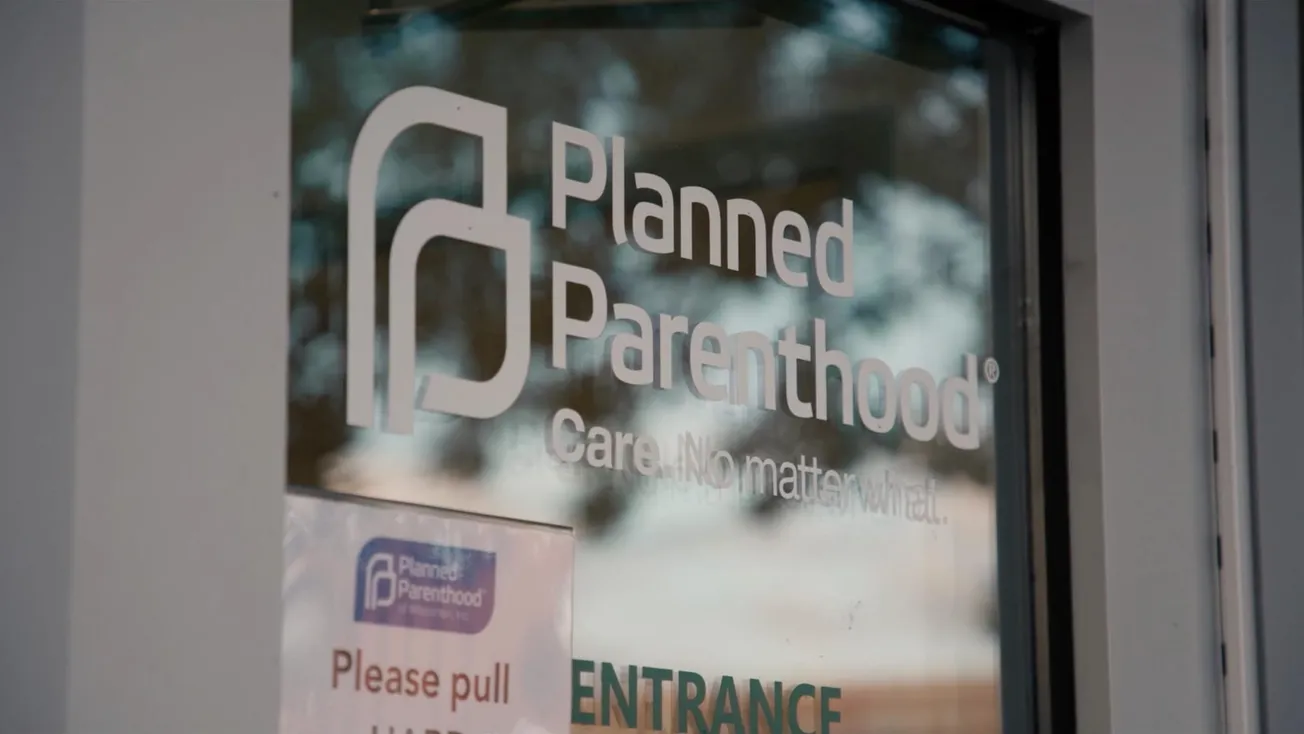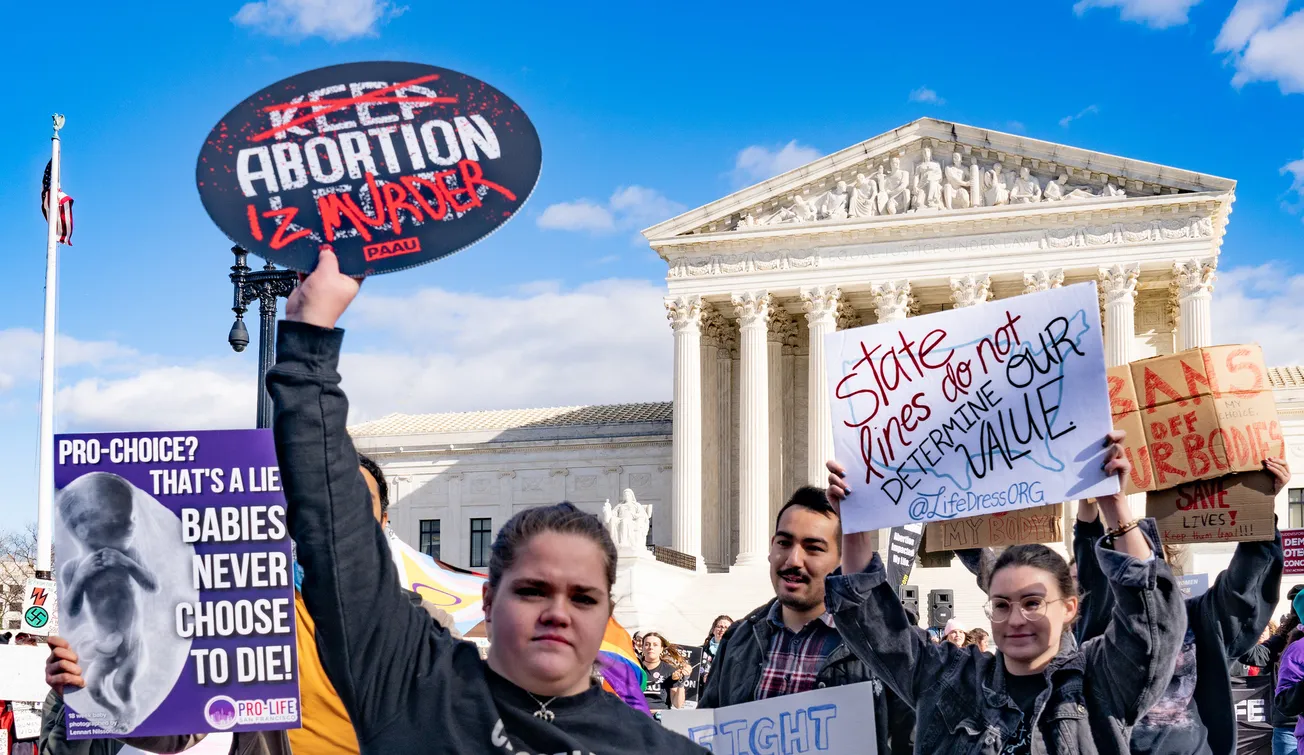Update, Monday 8/25/25, 2:45 pm: This story was updated with a new comment from PPGOH and response from PPGOH Workers United.
Unionized employees at Planned Parenthood of Greater Ohio (PPGOH), one of the state’s two Planned Parenthood affiliates, are asking the organization’s leadership to take 25 percent pay cuts before laying off any frontline staff amid losses in federal funding.
PPGOH Workers United told Autonomy News that the affiliate is seeking to lay off 20 to 30 percent of its unionized clinical staff as soon as next week. They found out about layoffs a few hours before an August 1 press release and about the scope of proposed cuts during a bargaining session. The union launched a letter-writing campaign on Wednesday asking supporters to contact management and demand that it commit to reducing executive pay in order to save as many patient-facing jobs as possible. The letter had more than 3,700 signatures as of Saturday.
Staffers at the affiliate, which operates 12 health centers across the state, organized with the Office and Professional Employees International Union (OPEIU) Local 98 in January, and are in the process of bargaining their first contract. The union has 176 members across two units: 141 clinical workers and 35 administrative employees. The proposed cuts could amount to losing roughly 30 to 40 clinical staffers.
PPGOH announced its plans to lay off employees in a release on August 1. The organization said it was set to lose $10 million annually as a result of frozen Title X federal family planning funds and due to its potential exclusion from the Medicaid program following enactment of the GOP budget bill. PPGOH president and CEO Erica Wilson-Domer said in a statement that the funding gap was existential. “Without a reduction in force, PPGOH could cease to exist, leaving over 50,000 patients without access to birth control, gender affirming care, abortion, and a myriad of other essential health care services,” she said. “As long as our doors are open, PPGOH remains committed to providing high-quality, affordable, and timely health care to all our patients.” The affiliate had already announced in June, before the budget bill passed, that it would close a clinic in Cleveland.
The union said it is aware of the need for sacrifice given the funding gap. However, workers are urging mutual sacrifice to save jobs and maintain the same level of patient care, said Sarah Fernandez, a health care assistant and a member of the union’s contract bargaining committee. As an HCA in the clinical unit, Fernandez takes patients to exam rooms, takes their history and any blood or urine samples, and does education and informed consent for family planning procedures like IUD insertions.
“We're trying to prioritize saving jobs of folks who have a lot of experience and moved up through the ranks in the clinics,” Fernandez told Autonomy News. “We are the lowest paid in the organization and that's who's getting cut,” she said. “We're getting rid of the best and the brightest and keeping management making significantly more.” Fernandez also noted that having fewer employees requires fewer supervisors. “If you're cutting workers, why do you need so many managers?”
While PPGOH CEO Wilson-Domer said in her statement the affiliate is committed to providing timely and affordable care, Fernandez pointed out that laying off clinical staff could cause delays and increase costs for patients, which could impact people’s ability to get time-sensitive care like emergency contraception.
Certain clinics are already so busy, Fernandez said, that some patients will drive an hour to get seen sooner at a different location. Having fewer clinical workers, she added, means that “health centers' schedules are going to fill up more. We're going to have less availability for things like walk-ins or emergent visits.”
“If you need emergency contraception, and you need your insurance to cover it, you need to be seen [at a clinic] within a certain amount of days,” Fernandez said. Emergency contraceptives with the active ingredient levonorgestrel, sold under brand names including Plan B and Julie, are most effective when taken within 72 hours after sex, but can be effective up to 120 hours later. These pills are available over the counter, but Fernandez noted they can cost $40 or more, which is out of reach for many people. The affiliate does sell one version for $24, “but if you don't have $24 and you're on Medicaid, you can come and see us and it's nothing out of pocket,” she said.
Putting any more barriers in that process “is kind of a scary thought for our patients,” she added. “I hate to say it this way, but there will be unplanned pregnancies as a result of all of this.”
It’s also possible that staffing cuts could make it more difficult for people to get abortion care, which is legal in Ohio until 22 weeks of pregnancy. PPGOH has two clinics that provide abortions through the end of the 19th week of pregnancy, but potential reduced appointment availability could crowd other clinics in the state.
Fernandez worries about the impact that staffing shortages would have on patients who already struggle to make it to their appointments because they often need to arrange childcare and transportation. She mentioned that people could also spend more time waiting to get called back to an exam room. It’s for these reasons that the union’s position is that every option should be exhausted before laying off patient-facing staff, Fernandez said.
It’s not clear to the union if PPGOH intends to have remaining staff maintain the same hours at the clinics—or if they plan to reduce hours or shutter more sites. “That's the million-dollar question. We have asked them their official position and what they've stated is that there's no plan [to close more clinics],” Fernandez said. “We are all not really sure how to take them at their word.”
The August press release announcing layoffs did not mention additional clinic closures. Autonomy News contacted PPGOH for comment on possible closures and whether its current position was that management would not pursue pay cuts or layoffs before reductions in frontline staff. After publication, Wilson-Domer said in a statement that PPGOH was still engaging in bargaining with OPEIU Local 98 over the proposed layoffs. "We understand that this is a stressful process for staff," she said. "We have informed the union that we have cut overall director level and above compensation by approximately $2 million in an effort to reduce overall costs and direct more resources to patient care. The impacts of a total $10 million funding loss unfortunately cannot be solved entirely through cutting executive compensation."
The union's position is not that pay cuts could solve the budget shortfall, but rather that more cuts should be made before layoffs. Fernandez said PPGOH informed the union in bargaining that the director-level cuts were the result of "essentially just not refilling positions over the last couple of years." She added, "the biggest issue we have with that is that none of those cuts are because of anything that have to do with the current state of Planned Parenthood. It was before Trump's re-election."
The first blow to PPGOH from the Trump administration came at the end of March, when the Department of Health and Human Services notified some recipients of Title X grants that their funding would be frozen; the pause halted nearly $30 million in funding nationwide. Title X is a program intended to increase access to birth control and STI testing for low-income people; it is by its nature a health equity program. HHS claimed the administration was reviewing grantees to ensure they complied with Trump’s executive orders on diversity, equity, and inclusion initiatives. PPGOH said it received about $2 million in Title X grants in 2024.
Then, in July, Trump signed a bill that seeks to “defund” abortion providers for one year if they received more than $800,000 in Medicaid reimbursements in 2023. (Federal law already prohibits the program from covering abortions outside a few exceptions, so the payments are for non-abortion services.) Planned Parenthood Federation of America (PPFA) sued the administration on behalf of its nearly four dozen affiliates.
While a judge ordered HHS to continue paying the reimbursements as litigation continues, Planned Parenthood affiliates—which are all independent—have responded in different ways. For its part, PPGOH is taking little chance due to the risk that the administration could ultimately prevail in court and demand the Medicaid money be repaid. Specifically, PPGOH is no longer billing Medicaid for intrauterine devices or Nexplanon implants, some of the most effective forms of reversible contraception. If patients with Medicaid want one of those birth control methods, they would have to pay out of pocket. “These are the most expensive services we provide, and to protect the organization from the risk of extreme financial loss, we can’t risk providing these services now and then never having the claims paid,” a PPGOH spokesperson told me earlier this month.
Fernandez said that decision is already affecting patients. “I recently had a Medicaid patient who wanted an IUD, and has had so many other services through us,” she said. “I had to be like, ‘No, I'm sorry. You're going to have to go to an OBGYN that accepts Medicaid that you've never been to, and now you have to wait.’ So now there's even more of a risk for an unintended pregnancy.” According to the Guttmacher Institute, nearly all Planned Parenthood clinics offer same-day insertions of IUDs and implants, compared to other family-planning clinics and health departments, where 59 percent have same-day IUDs and 69 percent can say the same of implants. Many OBGYN offices typically have to order the devices after a patient requests them.
Leadership is more removed from the consequences of its decisions than clinical staff, like effectively cutting off access to IUDs and implants for Medicaid patients, Fernandez said. "It's very frustrating that the senior management—and honestly, in my opinion, middle management—is not tightening their belts the way we are, considering they're not seeing the patient cry in front of them,” she said.
Another union member, a patient navigator named Bee Grubbs, said in a press release, “Our organization must not be so blinded by fear that we sacrifice the dignity of the patients that we are fighting so hard to survive for.”
There were also layoffs recently at the PPFA national office. The organization’s education department was hit hard, according to sources familiar with the situation, as were other teams that provide services to affiliates. Such affiliate support roles had already been significantly reduced in previous rounds of layoffs. One source told Autonomy News that some remaining staffers were being moved to other teams in what appeared to be a significant restructuring.
The education division is in charge of patient education materials in various settings, like information on the PPFA website, materials in clinics, education and outreach to parents, and training programs for evidence-based sex education. In March, PPFA touted that its education department was working to fill gaps left by the removal of federal webpages with resources on LGBTQ+ health and women’s health. They quoted Julia Bennett, senior director of digital education and learning strategy at PPFA. Bennett was laid off five months later, per sources familiar.
PPFA declined to tell Autonomy News how many people were laid off or if the federation was expecting further consolidation of affiliates in the wake of the GOP budget bill. Instead, a spokesperson acknowledged in a statement that there had been staffing cuts and suggested more changes could be in store.
“As we continue to fight to protect and expand access to all that Planned Parenthood and its 47 affiliates provide, we have made some operational shifts to ensure that we can continue to be the nation's leading provider of sex education, and to further integrate our ongoing work across different workstreams in the organization,” they said. “This will ensure that as an organization, we continue to support Planned Parenthood patients, enhance engagements with parents, and continue to advocate for increased access to information about sexual and reproductive health care.”
The spokesperson also referred to the challenging environment; PPFA has previously warned that the “defunding” provision could cause as many as 200 of its clinics to close. “PPFA will continue to adapt to meet the moment, which requires making strategic choices to tackle the challenges ahead,” they said.
PPFA will have 46 affiliates as of October 1, when Planned Parenthood Gulf Coast will be absorbed by Planned Parenthood of Greater Texas and close two clinics in the process. More closures are likely to come.
This story was edited by Garnet Henderson and copy edited and fact checked by Hannah Rappleye.
Follow Autonomy News on Instagram, Bluesky, TikTok, and LinkedIn.









